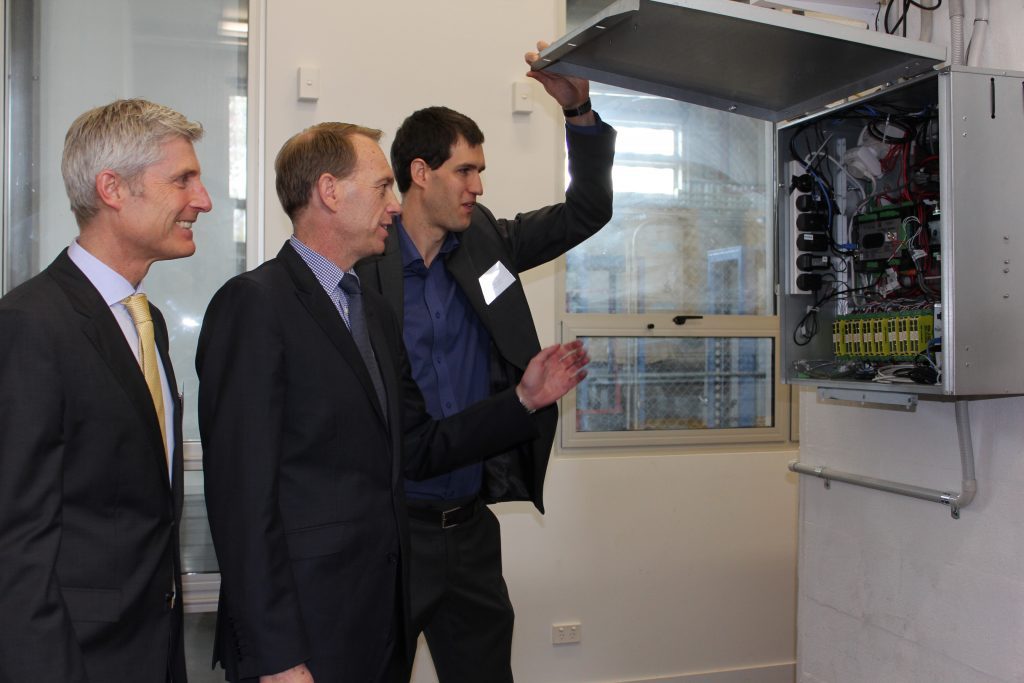ITP Renewables has teamed up with the Australian National University (ANU), UNSW Canberra, Evoenergy and the ACT Government to open the new “DER-Lab” on the Acton campus of ANU. Once built, the facility will allow for the rapid prototyping and testing of different combinations of new control, monitoring and communication systems for use with distributed energy and storage solutions installed at ANU.
The “DER-Lab” seeks to simulate real-world conditions prior to product roll-out, with the aim to develop protocols for solutions which incorporate numerous technologies. These protocols will help to ensure the market against early technology lock-in. Moreover, the research upon these technologies will be streamlined and the diversity of products across Australian markets maximised.
DERs are essential technologies for Australia’s energy future, if these new technologies evolve in isolation they will prove more and more difficult to integrate or companion, consider, for instance, inverter-battery combatibility. Finally, of course, in order for DERs to be properly scalable, they need to be able to work together, multi-functionally.
According to ITP, “the lab will model a small and reconfigurable distribution network where an array of DER devices such as residential batteries, solar PV systems, inverters, and real and simulated controllable electrical loads will be available to industry and researchers.”
ITP Renewables, backed by the Australian Renewable Energy Agency (ARENA), conduct independent product testing over an extended period of time and publicly report the results. As ITP Renewables told pv magazine Australia in July: “This information allows consumers and other stakeholders to better understand the performance of new technologies.”
In recent years ITP Renewables has been operating the Battery Test Centre, an independent testing lab of both lithium-ion and lead-acid batteries and battery management systems. The trials were extensive and thorough, and can be explored through its Virtual Lab.
“Quite apart from the individual testing results on efficiency and capacity retention,” said ITP Renewables, “overall the trial has provided a good indication of the state of the market. The lithium-ion technology clearly has potential; however, the market is rapidly evolving and consumers should undertake due diligence when choosing a particular battery product for their needs.”
The ACT Government’s Priority Investment Program provided $1.5 million for “DER-Lab”, and construction of the facility is planned for completion by Q2 2020.
This content is protected by copyright and may not be reused. If you want to cooperate with us and would like to reuse some of our content, please contact: editors@pv-magazine.com.









1 comment
By submitting this form you agree to pv magazine using your data for the purposes of publishing your comment.
Your personal data will only be disclosed or otherwise transmitted to third parties for the purposes of spam filtering or if this is necessary for technical maintenance of the website. Any other transfer to third parties will not take place unless this is justified on the basis of applicable data protection regulations or if pv magazine is legally obliged to do so.
You may revoke this consent at any time with effect for the future, in which case your personal data will be deleted immediately. Otherwise, your data will be deleted if pv magazine has processed your request or the purpose of data storage is fulfilled.
Further information on data privacy can be found in our Data Protection Policy.